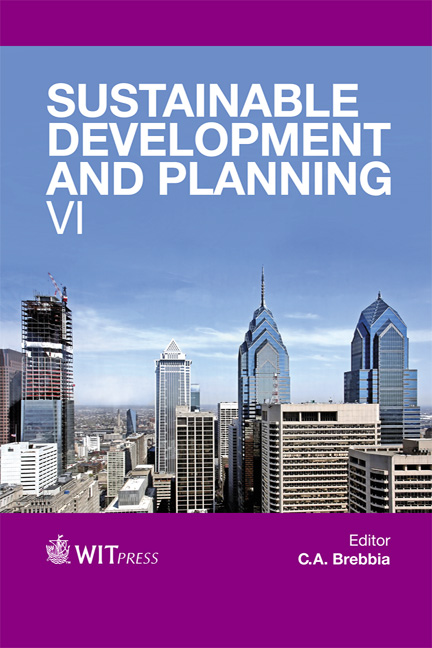Promoting Sustainable Waste Minimisation In The Built Environment: A Case Study Of Urban Housing In Akure, Nigeria
Price
Free (open access)
Transaction
Volume
173
Pages
12
Page Range
615 - 626
Published
2013
Size
1,385 kb
Paper DOI
10.2495/SDP130511
Copyright
WIT Press
Author(s)
Y. M. D. Adedeji, A. A. Taiwo, G. Fadairo, O. A. Olotuah
Abstract
The construction industry is one of the largest solid waste generators all over the globe. Because waste generation from both new construction works, as well as renovation works has been on the increase, it is absolutely necessary for the construction industry to adopt ecologically sound planning and construction practices for the purpose of creating a healthy and sustainable built environment. This is the focus of this paper. It appraises the management of construction waste in Nigeria and Akure in particular. A survey of selected construction sites in Akure is used as a case study to demonstrate the magnitude of poor management level of construction waste generation observed and the implications on the built environment. Research findings reveal that the Ondo State Waste Management Board is responsible for the management of solid waste in the city and over 78% of the construction waste is disposed indiscriminately or burnt on site, since the mandate of the board does not cover construction waste. Contractors were observed to cart away a sizeable junk of the waste for other uses. The paper suggests a wide range of measures for minimisation of waste on construction sites. These include modularisation of design, standardisation of building components, industrial production of building materials, efficient specification writing, retraining of building professionals, reuse and recycling among others. The paper concludes that there is colossal deficiency in the management of construction waste in the study area and recommend ways of ameliorating it.
Keywords
built environment, construction waste, management, modularisation of design, standard building components, sustainable





